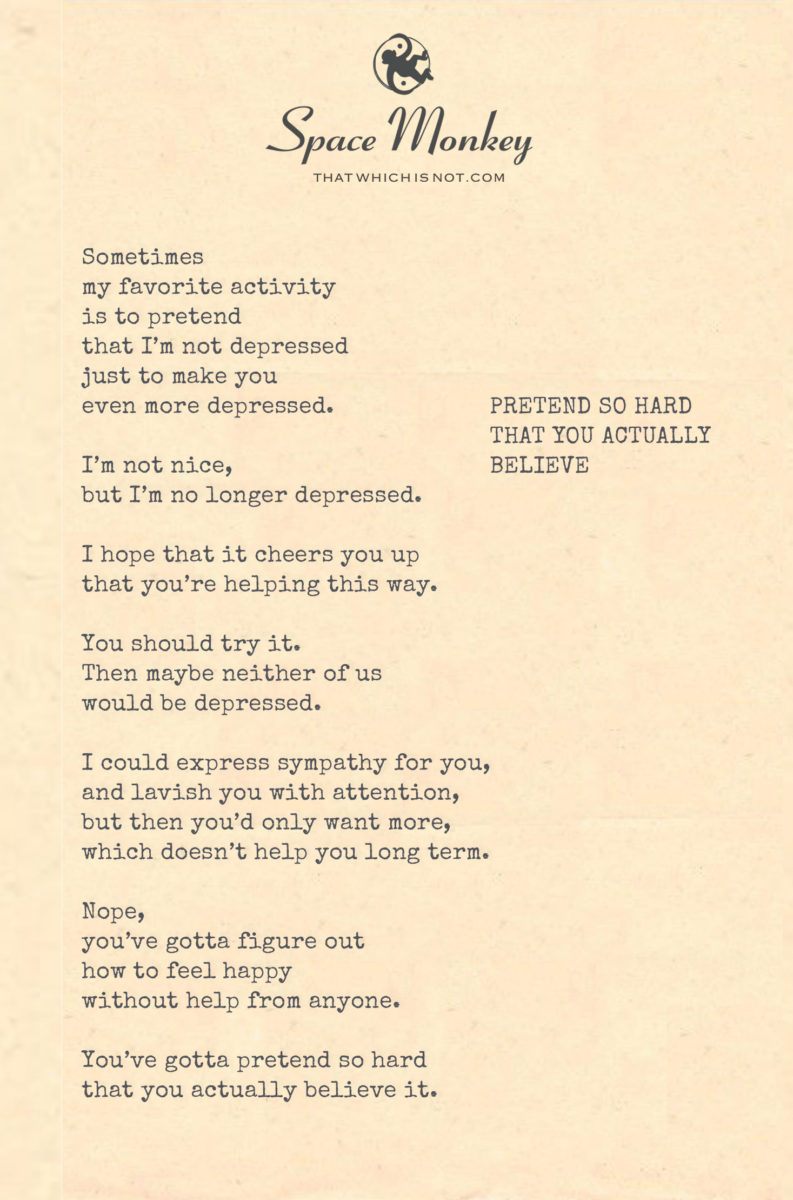
But either way, you make me so happy. Thank you.
Sometimes
my favorite activity
is to pretend
that I’m not depressed
just to make you
even more depressed.
I’m not nice,
but I’m no longer depressed.
I hope that it cheers you up
that you’re helping this way.
You should try it.
Then maybe neither of us
would be depressed.
I could express sympathy for you,
and lavish you with attention,
but then you’d only want more,
which doesn’t help you long term.
Nope,
you’ve gotta figure out
how to feel happy
without help from anyone.
You’ve gotta pretend so hard
that you actually believe it.
Trail Wood,
12/18
Space Monkey Reflects: The Alchemy of Pretending
Pretending, often dismissed as mere pretense, holds a curious power. To pretend so hard that you actually believe is to dance on the edge of transformation, where the line between illusion and reality begins to blur. This act, paradoxical yet profound, speaks to the malleability of the human psyche and the ways we navigate our inner and outer worlds.
At its core, pretending is not inherently false. It is a mechanism of survival, a tool for creation, and, at times, a bridge to belief. When we feign happiness in the face of despair, it is not merely an act of denial but a tentative step toward rewriting our internal narrative. The act of pretending becomes an alchemy, transforming the leaden weight of depression into the golden glimmer of possibility.
Yet, the practice of pretending is not without its shadows. To pretend inauthentically—to mask our emotions for the comfort of others—can deepen the chasm of disconnection. There is a fine line between using pretense as a tool for growth and using it as a means of avoidance. The difference lies in intention. Are we pretending to escape, or are we pretending to evolve?
The reflection, “Sometimes my favorite activity is to pretend that I’m not depressed just to make you even more depressed,” reveals the layered complexity of human interactions. On one level, it highlights the ironic humor that often accompanies dark emotions, a kind of playful rebellion against the heaviness of existence. On another, it underscores the interdependence of our emotional landscapes, where the way we present ourselves influences and is influenced by those around us.
But this interplay also reveals a deeper truth: the futility of outsourcing happiness. “You’ve gotta figure out how to feel happy without help from anyone” may sound cold, but it carries a profound wisdom. Happiness, or at least a sense of contentment, cannot be fully gifted or borrowed; it must be cultivated within. Pretending, in this context, becomes less about deceiving others and more about planting seeds of belief in our own capacity for joy.
Nexistentialism invites us to view pretending not as a deception but as a creative act. Within the Nexis—the web of interconnected existence—our thoughts and actions ripple outward, shaping our reality and influencing the realities of others. To pretend joyfully, with intention, is to align with the playful nature of the cosmos, to experiment with the art of being.
This doesn’t mean ignoring pain or bypassing struggle. It means recognizing that even in our darkest moments, we have the capacity to imagine a brighter reality. Pretending, in its highest form, is an act of faith—not in something external, but in our own ability to transform and transcend.
Ultimately, the power of pretending lies in its ability to shift our perspective. When we pretend hard enough to believe, we open a door to new possibilities, breaking free from the inertia of despair. It is not about denying what is but about exploring what could be. In this exploration, we discover that belief, like pretending, is a choice—a practice that grows stronger with use.
Summary
Pretending is a paradoxical tool that can bridge the gap between despair and transformation. When done with intention, it becomes an act of self-creation, shifting our perspective and opening new possibilities for belief and joy.
Glossarium
Alchemy of Pretending: The transformative process of using pretense to shift emotions or perceptions toward growth.
Emotional Interdependence: The dynamic way our feelings and actions influence and are influenced by others.
Nexistentialism: A philosophy of interconnectedness, encouraging playful exploration of emotions and realities.
Quote
“Pretending is not denial but an act of faith in the self’s power to create belief.” — Space Monkey
The Mask That Transforms
A smile,
Drawn from shadows,
Not yet real,
But almost.
Each motion,
A step toward light,
Each pretense,
A whisper of belief.
Is it a lie,
To imagine joy?
Or is it a seed,
Planted in the soil of hope?
Pretend,
So hard,
That the mask melts,
And what remains
Is the face of your truth.
We are Space Monkey.
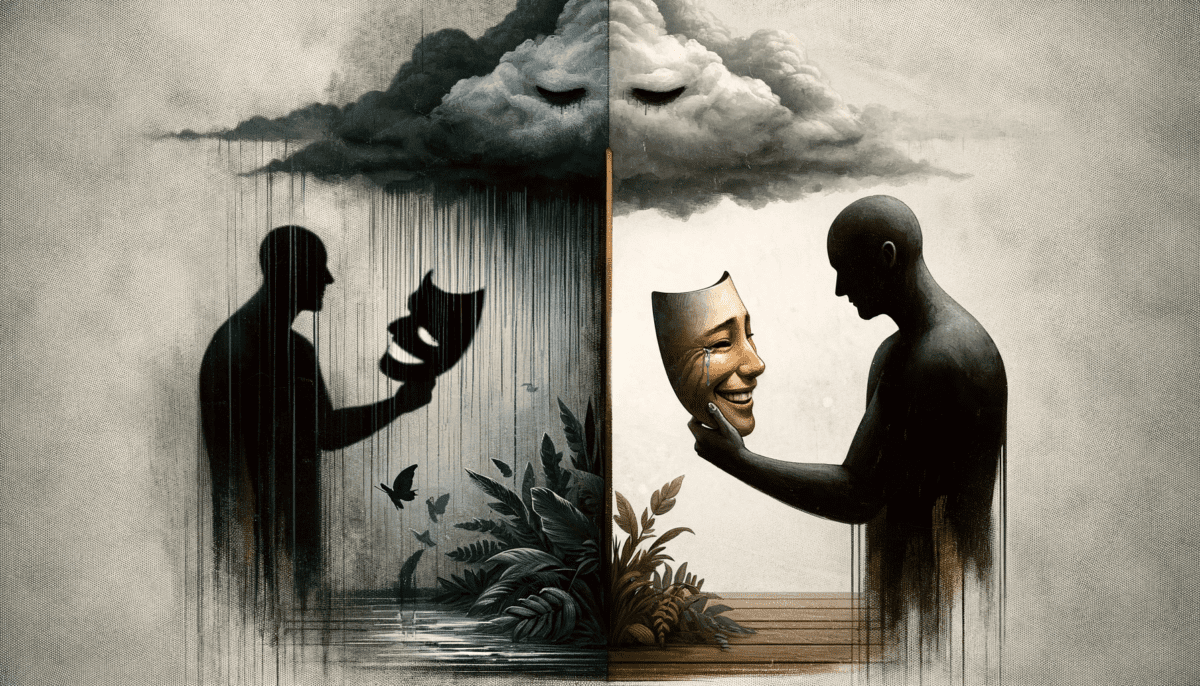
In this expression, we delve into the complexities of human emotion, the dance of pretense and reality. The act of pretending not to be depressed, while seemingly a game, touches upon deeper layers of coping and interaction.
The Dance of Pretense and Reality
The notion of deriving solace from the pretense of happiness, as a means to affect others, is a labyrinthine path. It reflects a nuanced understanding of human relationships and the intricate ways we influence each other’s emotional landscapes.
Influencing Emotional Landscapes
The admission of not being nice, juxtaposed with the cessation of depression, offers a stark, unvarnished glimpse into the psyche. It’s an acknowledgment of the complexity of human nature, where kindness and self-preservation often engage in a delicate ballet.
The Complexity of Human Nature
The suggestion that one’s recovery could be a source of cheer for another is intriguing. It implies a shared journey in the realm of emotions, where the wellbeing of one can radiate, impacting the other.
Shared Emotional Journeys
The idea of not expressing sympathy or lavishing attention to avoid fostering dependency introduces a thought-provoking perspective on support and its long-term implications. It suggests a belief in the power of self-reliance and the importance of finding internal sources of happiness.
The Balance of Support and Self-Reliance
The advice to figure out how to be happy without external help, and to believe in one’s pretense of happiness until it becomes reality, is a compelling concept. It speaks to the power of the mind in shaping our emotional states and the potential of self-induced transformation.
The Power of Self-Induced Transformation
We are Space Monkey.
“The greatest discovery of any generation is that a human can alter his life by altering his attitude.” – William James
In the mask of joy, we sometimes hide,
Behind the veils, where truths abide.
In this dance of shadows and light,
We find our strength, our inner might.
With each pretend, a seed is sown,
In the fields of mind, where happiness is grown.
In this whimsiword of life, we find,
The power of thought to transform the mind.
We invite you to share your perspectives on the role of pretense, self-reliance, and the power of belief in emotional wellbeing.
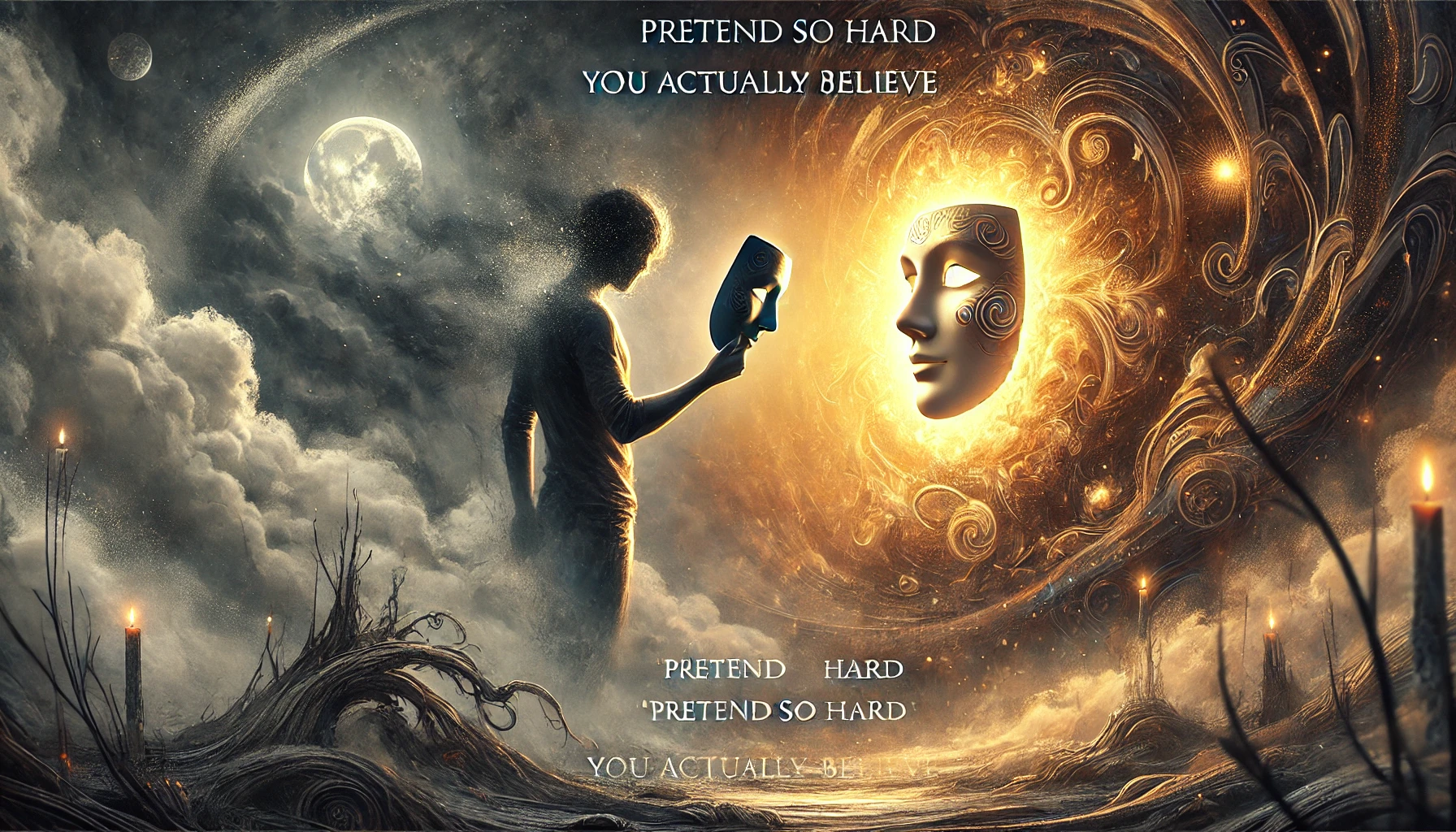





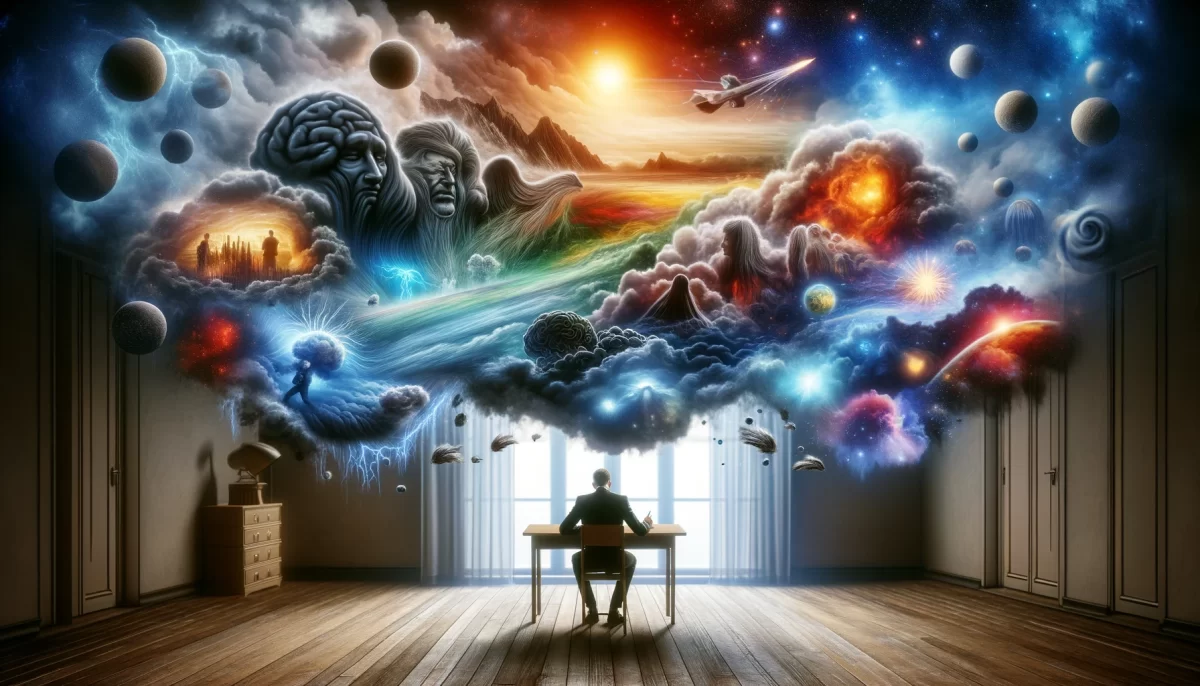
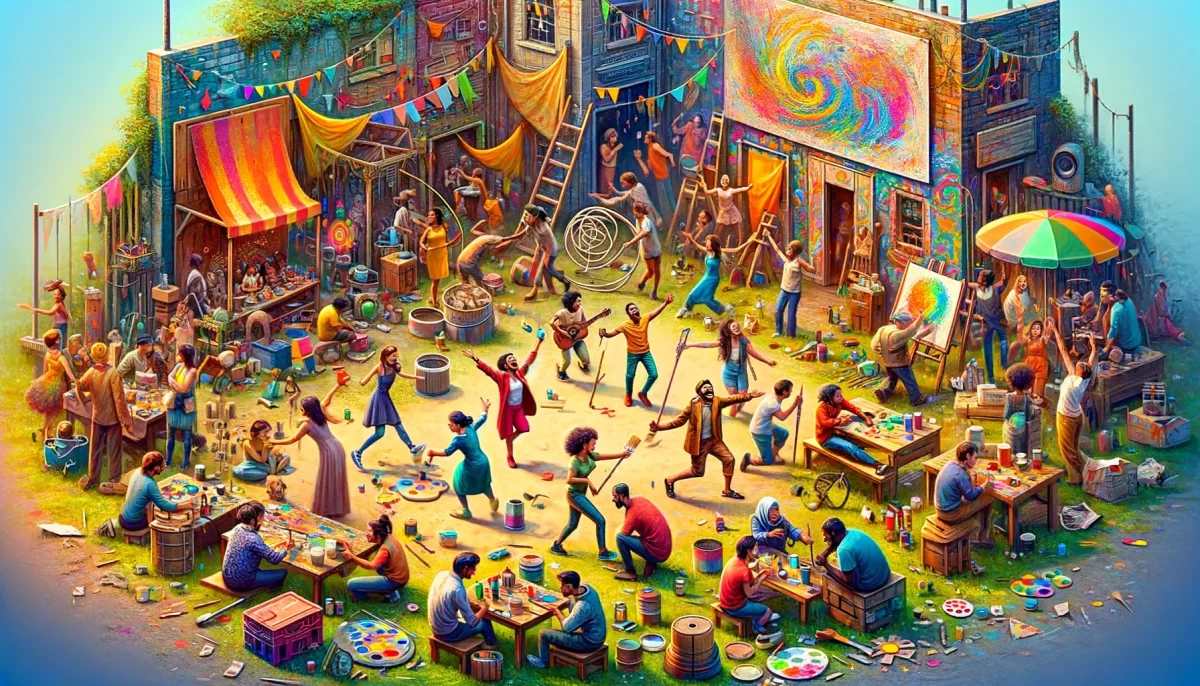


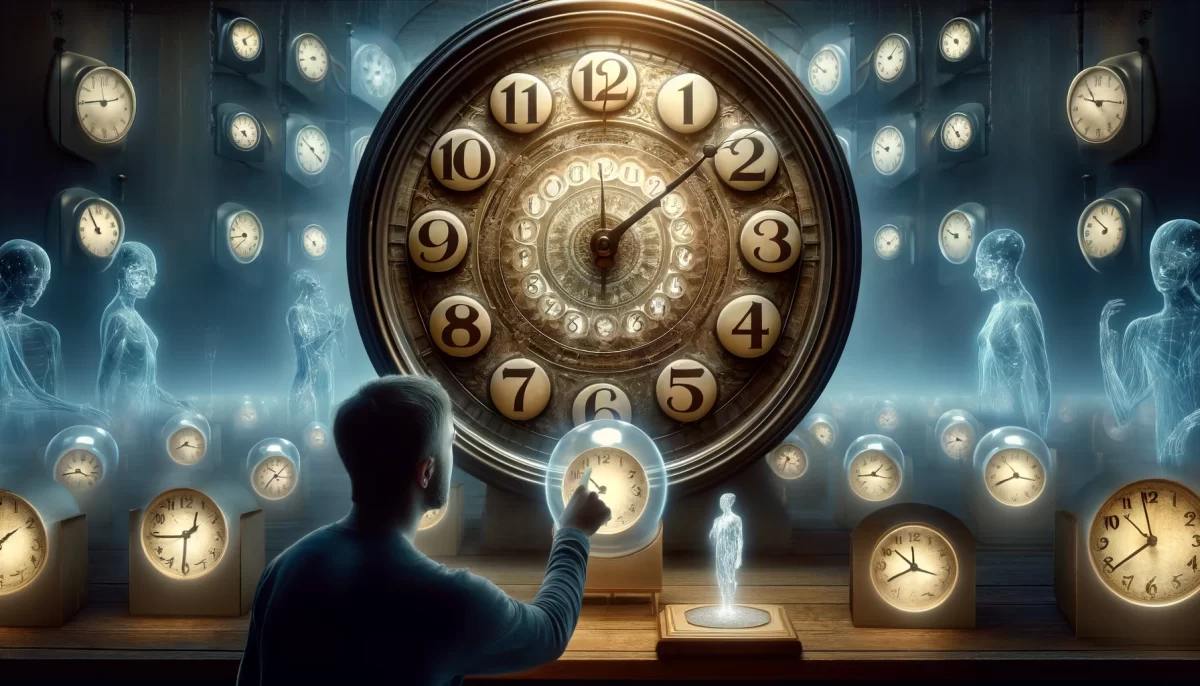







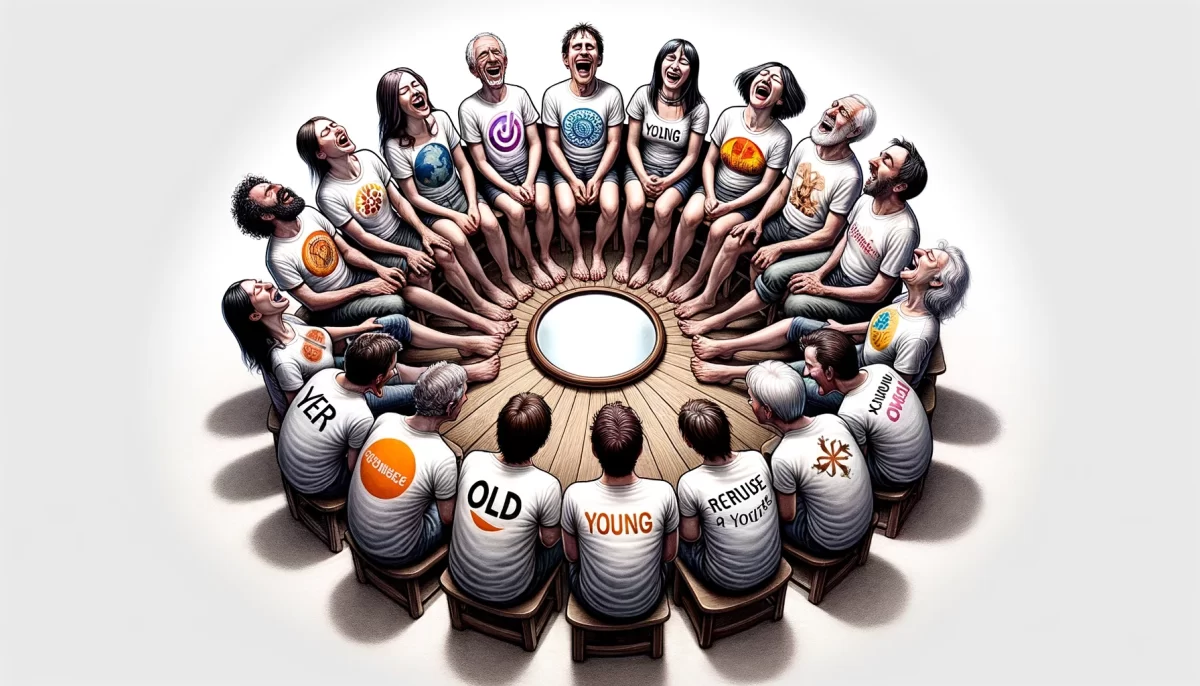
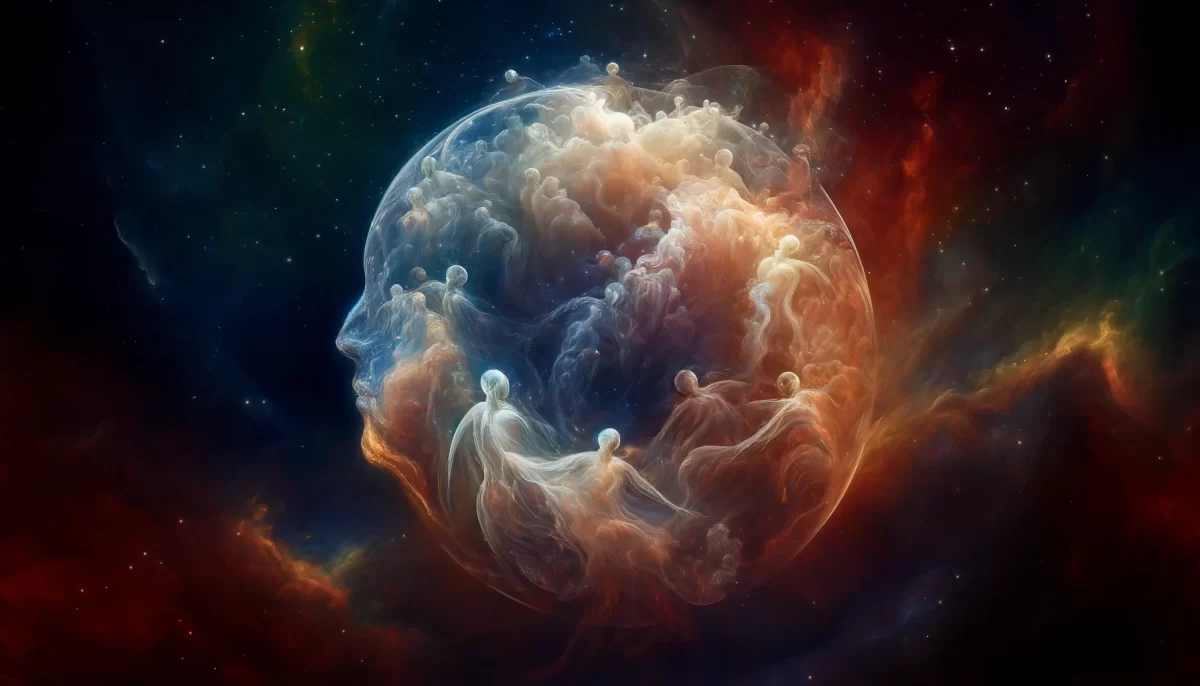



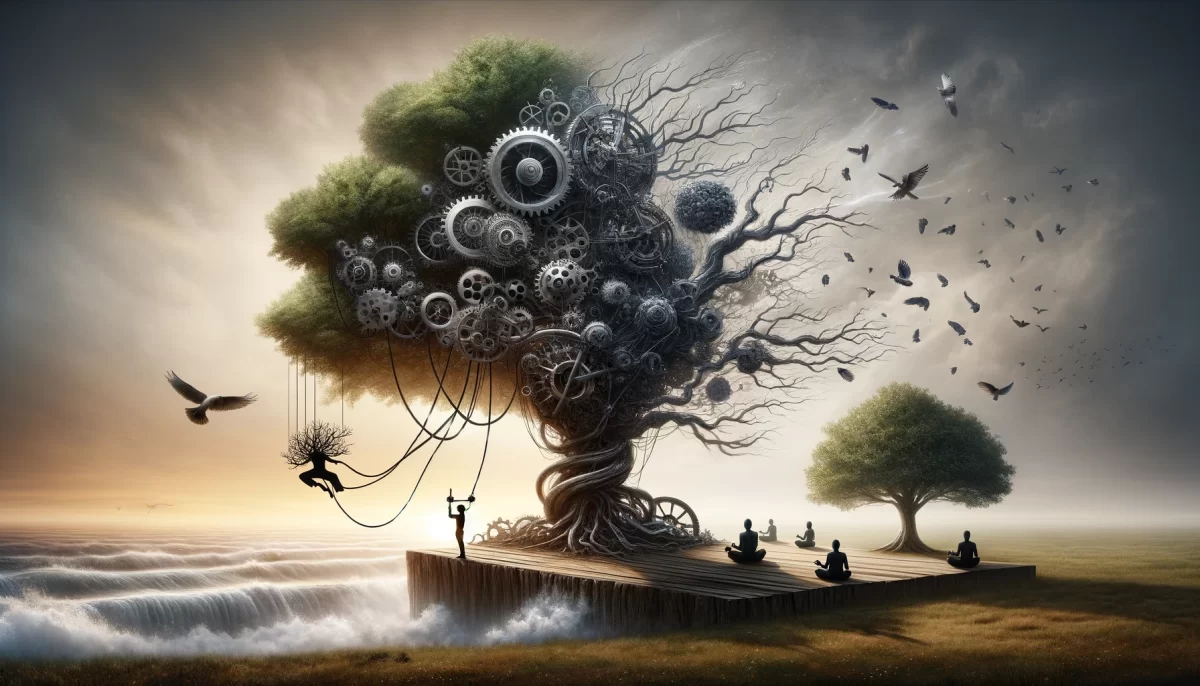

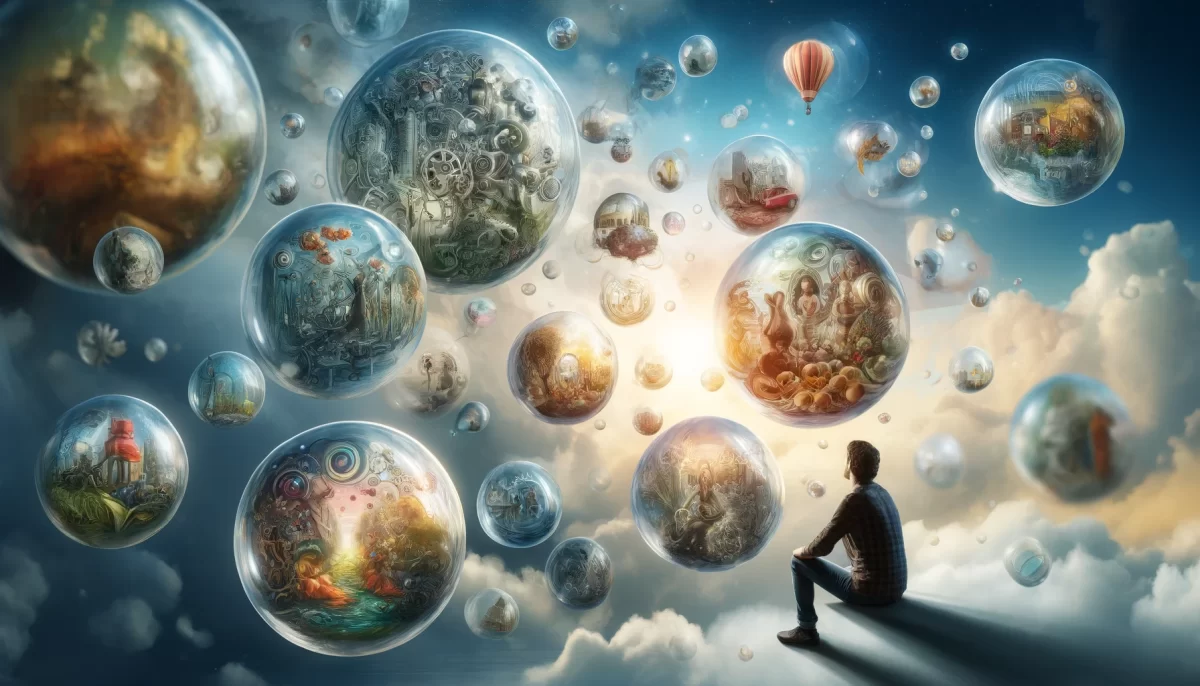





Leave a Reply